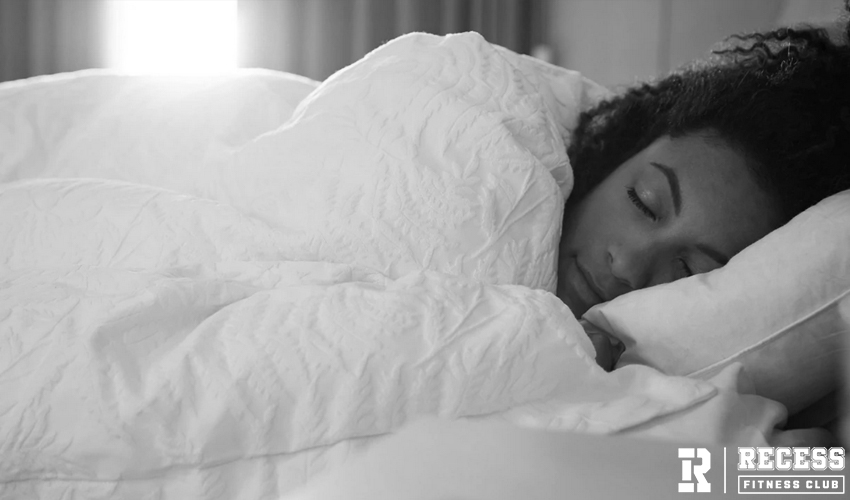I am sure everyone knows how important sleep is, but I cannot stress enough that it is truly one of the most important aspects when it comes to both mental and physical well-being. Just to cover the basics I want to go over the benefits of getting enough sleep and what you can do to get a quality night.
Sleep affects the following:
- Stress, anxiety, and depression are all intertwined and affected by one another. Quality sleep will reduce the side effects of all three.
- Inflammation—Your body’s response to injury and infection. Constant inflammation can be problematic to our health and quality sleep can reduce unwanted inflammation.
- Weight—Lack of sleep is directly correlated to weight gain. Those who do not get enough sleep are known to have interruptions in appetite hormones causing irregularities, thus, resulting in weight gain.
- Brain function— Cognition, concentration, productivity, and performance. At the most basic level, lack of sleep is going to impair brain function. I think it’s pretty safe to say we need a full-functioning brain!
- Immune System— If you find that you get sick often I encourage you to start with your sleep habits. If you are not getting enough your immune system is greatly affected and probably the culprit.
Here are some tips for getting more high-quality sleep in your life.
- Create a ritual—A nightly ritual will teach your body and brain when it’s time to shut down and get ready for sleep. Your routine could include the following:
- Limit bright lights (cell phone and T.V.) use about an hour before sleep
- Taking a bath/ shower and ridding yourself of the day’s activities
- Reading—avoid reading on cell phones or an iPad
- Journaling or writing down your gratitude for the day
- Meditation or listening to relaxing soundscapes—- my favorite sounds are ocean waves and light rain.
- Light stretching or yoga
- One very important aspect of your routine is keeping the timing consistent. If you choose to start this routine at 9 p.m. then stick to that every night. The more consistent you are with timing that you go to sleep (and wake) the easier sleep will be and quality will increase.
- The bottom line, create a routine that works for you and maintain consistency.
- Exercise! Yes, being active and exercising regularly will have positive effects on your sleep.
- About 30 min of moderate aerobic exercise is sufficient for an increase in sleep quality
- A common misconception is that exercising too close to bedtime is associated with poor sleep. Research shows that this is not the case, and exercise any time of the day is linked to better sleep.
- Watch your caffeine intake
- Caffeine stimulates your nervous system, which is not conducive to sleep
- Consuming caffeine up to 6 hours before sleep has been proven to worsen sleep quality. Aim to stop caffeine intake around 2-4 pm depending on your sleep schedule.
- Supplements—Certain vitamins and supplements can aid in relaxation and help you get to sleep.
- Melatonin—I take it as needed, so not every night. But it’s the perfect element for allowing my mind to shut off and get relaxed for bed.
- Lavender—Try a diffuser with lavender oil or this pillow spray
- L-Theanine—An Amino acid that is proven to increase relaxation
- Magnesium—With effects on about 600 different reactions in the body, sleep quality is on the list and proven to have positive effects on sleep quality.





